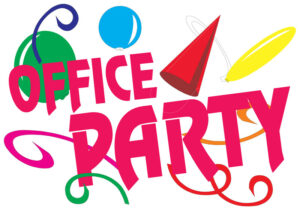The COVID-19 pandemic continues to cause havoc among the nation’s small businesses. Employees have been furloughed, or worse, terminated. “Essential” businesses and small, “non-essential” employers and businesses have been forced to shutter their doors and stay closed or work with very stringent operating restrictions (curbside delivery/pick up, limited store hours, limited access and number of customers at one time, just to name a few). The safety measures seem to have had an effect and now, states are beginning to “re-open” their economies and businesses. As this reopening slowly happens, there are important workplace considerations to be aware of as we all navigate the “new normal.” Employers and businesses considering reopening will face a complex patchwork of new legal requirements and practical considerations. Planning in advance to prepare a Return to Work strategy is essential. Below are considerations that should be taken into account for any proper Return to Work strategies:
- Who Comes Back To Work First? Employers must rely on neutral, non-discriminatory plans of action in deciding which employees should be allowed to return to work. An analysis needs to be conducted as to which employees need to be in the workplace more than others. The analysis should include factors such as skills, knowledge and experience. Care needs to be taken that biases such as age, race, sex or other prohibited considerations are NOT taken into account during this analysis or there will be the very real risk of a costly discrimination action. Employers need to backstop their decisions with a legitimate, non-discriminatory explanation for the steps they took in deciding who comes back when (or at all).
- What Kind of Testing Can Be Done To Returning Employees? Employers and employees are all concerned about the safety of returning workers. Recently, the U.S. Equal Opportunity Employment Commission (EEOC) issued guidelines that allow an employer to make certain disability and related medical exams. These include:
- Employers may ask employees if they are experiencing COVID-19 symptoms (fever, chills, shortness of breath, sore throat);
- Employers may monitor and test an employee’s temperature;
- Employers may require employees with COVID-19 symptoms to leave the workplace and stay home;
- Employers may require employees returning to work to provide a medical fitness for duty certification;
- Employers may administer tests to detect COVID-19 virus before permitting employees to enter the workplace. Any and all test results must be kept confidential and not shared with the employee population
- An employer should explore reasonable accommodations for employees with a pre-existing mental condition that has been exacerbated by the COVID-19 crisis.
- Employers may require employees to wear protective gear (i.e. face masks and/or gloves) and observe infection control practices (social distancing and hand washing/sanitizing).
- Is There Liability If A Business Reopens And An Employee Gets COVID-19? This pandemic will certainly present capricious attorneys with the opportunity to file negligence or intention injury claims on behalf of employees who get sick with COVID-19 as a result of returning to work. The best defense a business can have is to have crafted a well-reasoned and medically supported Return to Work Plan. Many agencies, including OSHA have indicated they will look favorably upon employers who follow all medical guidance and make good faith efforts to address hazards and keep the workplace safe. Again, every workplace is different, but your Return to Work Plan should include:
- Keeping employees at least 6 feet apart;
- Rigorous cleaning and sanitizing;
- Testing (if available);
- Eliminating common foods/snacks/coffee areas;
- Making mask mandatory;
- Responding quickly and effectively to isolate exposed areas and people when a worker becomes sick;
- Developing an effective communications plan that is applied consistently;
- Understanding an employee’s protest rights – Under the National Labor Relations Act, even non-union employers can be held liable if they interfere with employee’s rights to raise safety related issues in the workplace.
- Other considerations can include designing one way aisles, utilizing plexiglass barriers, temporary job restructuring of non-essential job duties, and modifying work schedules and shift assignments.
- Develop An Employee Relations Control Plan This plan will need to anticipate and address labor and employment issues related to the “new normal”. Items to consider include whether and to what extent an employee can refuse to return to work for fear of contracting COVID-19, employee privacy issues; liability to visitors to the workplace; what accommodations can be made for employees who are particularly susceptible to the COVID-19 virus; and what are the wage and hour issues associated with reduced duties, hours or health monitoring. The Employee Relations Plan should also take into account training for all employees on safety protocols and social distancing. A review of all employee policies and procedures should be conducted to ensure compliance with the new rules and regulations regarding employee safety.
Unfortunately, there is no “cookie cutter” approach to operating a business in the new normal. All of the advice and considerations set out are dependent on your workforce, your business operation and an employer’s business needs. Proactive planning at this stage is critical to ensure as seamless a transition back to operations as is possible given the new world businesses will be facing. It goes without saying that an experienced legal counselor, such as Boznos Law, P.C. can help you navigate through all of these issues.
As you can see, there are a number of questions and areas of potential uncertainty brought about by this national health crisis which can dramatically affect unemployment. We are here to help guide you through these turbulent times. A law firm that concentrates in employment related matters like ours can help navigate this maze of new laws. With over 36 years’ experience in advising employers and employees on workplace issues, let Boznos Law work with you to ensure you are ready to meet the challenges posed by the changes to the employment laws. Call Bill Boznos today at (630) 375-1958 or contact us at through our website at www.boznoslawoffice.com.


